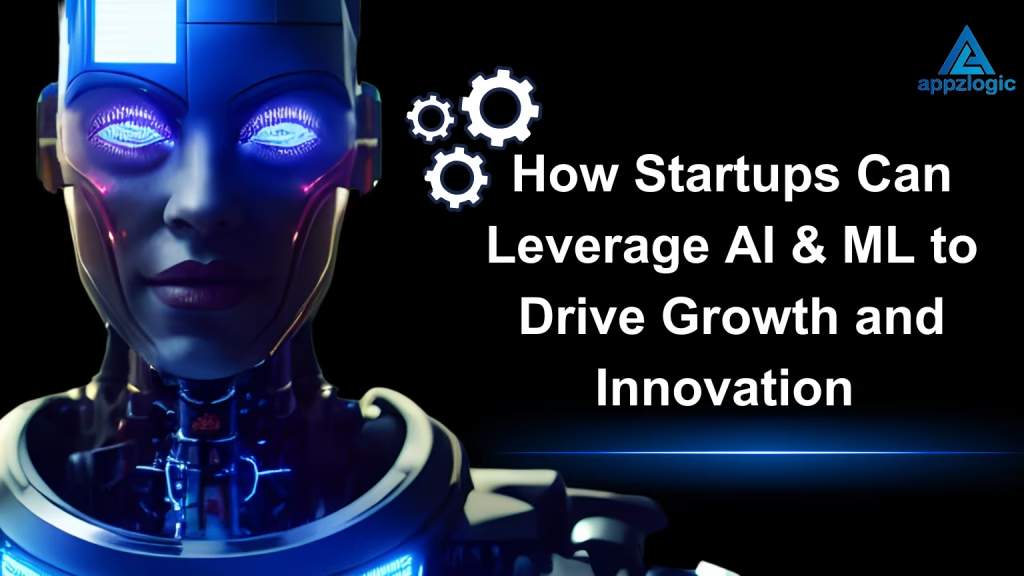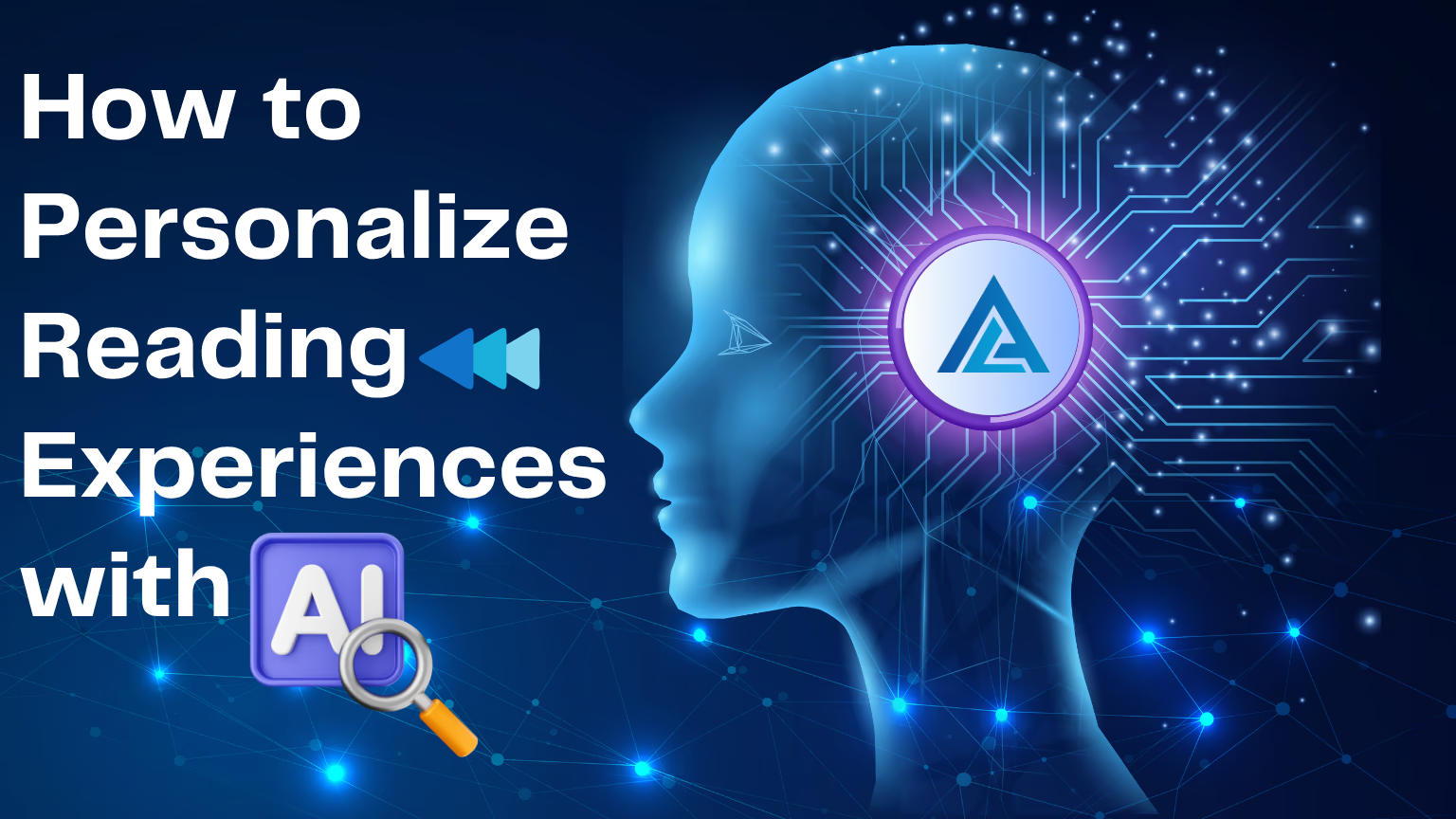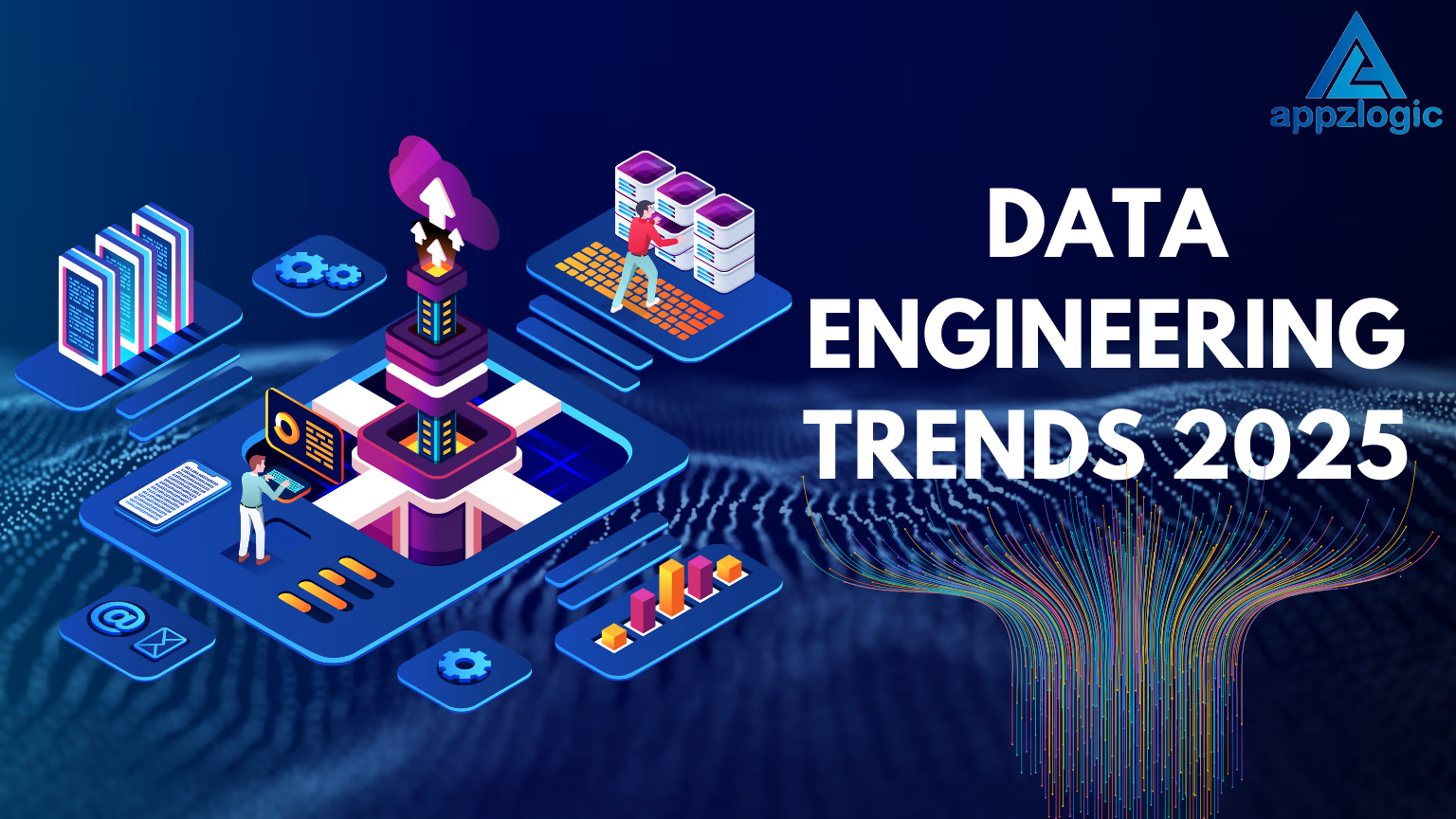
How Startups Can Leverage AI & ML to Drive Growth and Innovation
Artificial Intelligence (AI) and Machine Learning (ML) are transforming the way businesses operate and how people interact with technology. AI is a broad field that enables machines to perform tasks that typically require human intelligence, such as understanding language, recognizing images, and making decisions. ML, a subset of AI, allows machines to learn from data and improve their performance over time without being explicitly programmed.
From voice assistants like Siri and Alexa to recommendation systems on Netflix and Amazon, these technologies are making our lives easier and businesses more efficient. Companies across industries use AI to automate tasks, analyze large amounts of data, and provide better customer experiences.
How AI and ML Changing Industries
AI and ML are driving innovation across multiple sectors. Some key industries benefiting from these technologies include:
Healthcare
AI-powered applications help doctors diagnose diseases, suggest treatments, and even predict potential health risks. ML models analyze vast amounts of patient data to find patterns, improving accuracy in diagnostics. For example, AI can detect cancer in medical images faster and more accurately than traditional methods.
Finance
Banks and financial institutions use AI to detect fraudulent transactions, automate customer service, and manage risks. AI algorithms analyze spending patterns to flag unusual transactions, helping prevent fraud. Chatbots powered by AI assist customers with banking inquiries, reducing the need for human intervention.
Retail
Retailers leverage AI to enhance customer experiences through personalized recommendations, inventory management, and demand forecasting. AI-powered chatbots help customers find products, while ML algorithms predict which items will be popular based on past purchasing trends.
Transportation
Self-driving cars are one of the most advanced applications of AI. Companies like Tesla and Waymo use AI-powered systems to process real-time data from cameras and sensors, allowing vehicles to navigate roads autonomously. AI is also used in logistics to optimize delivery routes and reduce fuel consumption.
Cybersecurity
AI helps detect and prevent cyber threats by analyzing network traffic and identifying unusual patterns. Cybersecurity firms use AI-powered tools to monitor systems in real-time and respond to potential threats before they cause damage. With evolving technology, cybersecurity presents both new challenges and opportunities for businesses worldwide. The increasing sophistication of cyber threats demands strong security measures and a proactive approach to protecting digital assets. For this one should know about cybersecurity trends.
Market Growth and Adoption
The AI market is growing rapidly. Search Logistics predict that the global AI market will reach $190.61 billion by 2025. Businesses are investing in AI to improve efficiency, automate repetitive tasks, and gain deeper insights from data.
Adoption Trends
- Developed Countries: Many businesses in developed countries have already integrated AI into their operations, leveraging its capabilities for automation and data-driven decision-making.
- Emerging Markets: Developing economies are catching up by investing in digital infrastructure and AI technologies to remain competitive.
- Corporate Integration: Companies rapidly incorporate AI into core business processes, such as customer service, supply chain management, and marketing.
Key Developments in AI and ML
AI and ML continue to evolve, leading to new innovations and advancements. Some of the most significant developments include:
Generative AI
Generative AI can create content, such as text, images, and even music. Popular tools like ChatGPT and DALL-E demonstrate how AI can generate human-like text and realistic images. Businesses use these tools for marketing, content creation, and customer engagement.
Explainable AI
One of the biggest challenges with AI is understanding how it makes decisions. Explainable AI focuses on making AI systems more transparent by showing the decision-making process. This helps build trust and ensures compliance with regulations.
Natural Language Processing (NLP)
NLP allows AI to understand and respond to human language. Chatbots, virtual assistants, and translation tools all use NLP to interact with users naturally. Businesses use NLP to improve customer support and automate document processing.
Also Read about: DeepSeek R1 and ChatGPT: A Comparison of AI Performance and Use Cases
Challenges and Ethical Considerations
Despite its benefits, AI and ML come with challenges and ethical concerns that need to be addressed.
Bias in AI
AI systems learn from data, and if the data contains biases, the AI may make biased decisions. For example, biased hiring algorithms may favor certain candidates over others. Ensuring diversity in training data and using fairness-focused AI models can help mitigate bias.
Data Privacy
AI systems often require large amounts of data to function effectively. Companies must ensure they handle user data responsibly and comply with privacy regulations like GDPR and CCPA.
Security Risks
AI can be used maliciously, such as in deepfake technology or AI-driven cyber-attacks. Businesses and governments must implement safeguards to prevent misuse.
How Startups Can Use AI and ML for Business Growth
Artificial Intelligence (AI) and Machine Learning (ML) are transforming the way businesses operate. Startups can leverage these technologies to optimize processes, improve decision-making, and enhance customer experiences. By implementing AI and ML, early-stage startups can compete with larger companies and drive business growth efficiently.
AI and ML Applications for Early-Stage Startups
Startups can integrate AI and ML into various aspects of their operations. AI-powered chatbots handle customer inquiries, reducing response time and improving satisfaction. Marketing automation tools use ML algorithms to analyze customer behavior and personalize email campaigns and social media ads. AI tools process large amounts of data, providing insights that help startups make informed decisions. Security systems powered by AI monitor transactions, detecting unusual patterns to prevent fraud. Predictive analytics tools help startups anticipate market trends and optimize their strategies accordingly.
Benefits of AI and ML for Startup Companies
AI and ML offer numerous benefits to startups. Automating repetitive tasks reduces operational costs and improves efficiency. AI-driven workflows allow teams to focus on high-value tasks, increasing overall productivity. AI-powered analytics provide data-driven insights that help startups refine their business strategies. Enhanced personalization in customer interactions leads to better user engagement and loyalty. As AI systems can adapt to business growth, startups can scale their operations seamlessly and efficiently.
How Artificial Intelligence Helps Startups Innovate
Startups thrive on innovation, and AI plays a crucial role in driving creative solutions. AI-powered tools help businesses develop new products by analyzing market gaps and consumer needs. Recommendation engines enhance customer personalization, offering tailored product suggestions. AI automates content creation for blogs, social media, and advertisements, saving time and effort. Additionally, ML-powered pricing strategies optimize sales by adjusting prices based on demand forecasting and competitor analysis.
Best AI Tools for Startups to Improve Efficiency
Several AI tools are available to enhance productivity for startups. ChatGPT serves as an AI-driven chatbot for customer support and content generation. Grammarly acts as an AI-based writing assistant, ensuring clear and error-free communication. Hootsuite aids in social media management, while HubSpot provides AI-powered CRM solutions for managing customer interactions effectively. Tableau assists startups in analyzing data through AI-driven visualization and business intelligence tools, making decision-making more strategic and informed.
How Machine Learning Can Optimize Startup Operations
ML algorithms help startups refine their operations by automating supply chain management, reducing waste, and improving efficiency. AI-driven recruitment tools streamline hiring processes, ensuring the selection of the best candidates. Personalized marketing strategies leverage ML to target the right audience with optimized content. AI improves customer segmentation, allowing startups to tailor their offerings based on user preferences and purchasing behaviors.
AI-Powered Business Strategies for Startup Success
To succeed, startups must implement AI-driven strategies that focus on data-driven decision-making, predictive sales forecasting, and AI-enabled lead generation. AI interprets complex data, helping businesses make informed choices that lead to sustainable growth. AI-driven predictive analytics anticipate customer demand, allowing startups to optimize inventory and supply chain management. Smart pricing models adjust prices dynamically based on market trends, while AI-based lead generation tools identify and prioritize potential customers for maximum engagement.
AI and ML-Driven Automation for New Businesses
Automation enhances efficiency in multiple areas of startup operations. AI-powered chatbots simplify customer onboarding, answering queries and guiding new users through processes. Financial transactions are optimized with AI-driven accounting tools that streamline budgeting and financial planning. AI-powered recommendation engines analyze customer behavior, suggesting relevant products and services. Automated email campaigns personalize interactions, increasing engagement and conversion rates.
Ways Startups Can Implement AI and ML Without Coding
Many no-code AI tools enable startups to integrate AI without technical expertise. Zapier automates workflows without the need for programming. Bubble.io allows businesses to build AI-powered apps using a visual interface. MonkeyLearn offers AI-driven text analysis tools that do not require coding skills. Peltarion provides an easy-to-use interface for deploying AI models, making AI accessible to non-technical startup founders.
The Future of AI and ML in the Startup Ecosystem
The future of AI and ML in startups looks promising. AI will continue to drive automation, analytics, and decision-making in various industries. ML-powered insights will help startups scale efficiently and make data-driven decisions. AI-driven innovation will lead to the development of cutting-edge products and services, allowing startups to stay ahead of the competition. More startups will adopt AI-powered solutions to streamline operations and enhance productivity. As AI technology evolves, businesses will increasingly rely on data-backed decision-making to remain competitive. Continuous advancements in AI and ML will shape the startup landscape, making it essential for new businesses to embrace these technologies for long-term success.
The Future of AI and ML
The future of AI and ML looks promising, with continuous advancements shaping various industries. Some key trends to watch include:
- AI in Education: AI-powered tutors and personalized learning experiences will make education more accessible.
- AI in Healthcare: AI will further improve diagnostics, drug discovery, and patient care.
- AI in Business: Companies will increasingly use AI for decision-making, customer engagement, and automation.
- AI Regulation: Governments will introduce policies to ensure responsible AI use and protect user rights.
Conclusion
AI and ML are revolutionizing how startups operate, making businesses more efficient, data-driven, and customer-centric. From automating tasks to optimizing decision-making, AI and ML offer immense potential for startup growth. As technology advances, startups that embrace AI will have a competitive edge in the market, driving innovation and long-term success.
We are the Best AI and ML service provider with cutting-edge solutions for your business.
Frequently Asked Questions
AI is a broad field that enables machines to perform intelligent tasks, while ML is a subset of AI that helps machines learn from data and improve over time.
AI is used in voice assistants (Siri, Alexa), recommendation systems (Netflix, YouTube), navigation apps (Google Maps), and smart home devices.
AI will automate repetitive tasks but also create new job opportunities in AI development, data science, and other tech fields.
AI helps businesses improve efficiency, automate processes, analyze data, enhance customer experience, and detect fraud.
AI risks include bias in decision-making, data privacy concerns, job displacement, and security threats like AI-powered cyber attacks.







